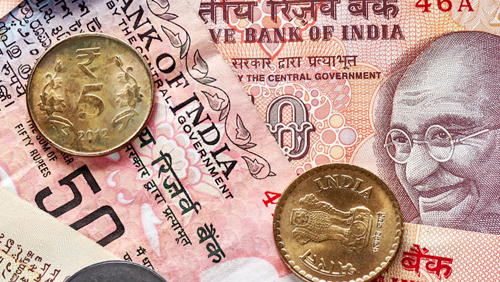Lotteries in India are always a sensitive subject. Going back a number of years, there have been conflicts over sales, revenue and non-payment of taxes. Now, the country’s GST (Goods and Service Tax) Council, in its first meeting of the year a week ago, is recommending that the government create a new panel to review GST rates, as well as all tax issues that arise from the sale of lottery tickets.
 The council wants the group to be comprised of state ministers. It will include eight ministers and would be led by the Finance Minister of Maharashtra, Sudhir Mungantiwar. Joining him in the so-called Group of Ministers (GoM) will be West Bengal Finance Minister Amit Mitra; Kerala Finance Minister Thomas Isaac; Assam Finance Minister Himanta Biswa Sarma; Punjab Finance Minister Manpreet Singh Badal; Goa Panchayat Minister Mauvin Godinho; Karnataka Finance Minister Krishna Byre Gowda, Arunachal Tax and Excise Minister Jarkar Gamlin.
The council wants the group to be comprised of state ministers. It will include eight ministers and would be led by the Finance Minister of Maharashtra, Sudhir Mungantiwar. Joining him in the so-called Group of Ministers (GoM) will be West Bengal Finance Minister Amit Mitra; Kerala Finance Minister Thomas Isaac; Assam Finance Minister Himanta Biswa Sarma; Punjab Finance Minister Manpreet Singh Badal; Goa Panchayat Minister Mauvin Godinho; Karnataka Finance Minister Krishna Byre Gowda, Arunachal Tax and Excise Minister Jarkar Gamlin.
The GST Council laid out its Terms of Reference (ToR) for the panel, stating that one of the goals will be to determine if the current dual tax structure of existing state-authorized and state-run lotteries should be continued, or if a new, uniform rate could be implemented for both. The ToR also stipulates that the GoM determine whether private individuals appointed by the states are abusing the lower rate for their own financial benefit, depriving the jurisdictions of their rightful share of the profits. The group would need to formulate plans to prevent any possible abuse.
The GoM will also probably be tasked with examining issues regarding the enforcement of lottery rules, including the possible creation of a legal framework, that could be used to prevent lottery tax evasion. One of the possibilities to aid in that prevention could be the creation of a single tax rate that would make it easier to track sales and revenue.
A number of lottery operators have tried to circumvent having to pay GST on lottery sales. There has been a string of arrests across the country after police discovered that the operators were handing out handwritten lottery tickets, instead of printed official tickets, in an effort to avoid paying the tax.
Depending on how quickly the GoM can get organized and begin its crackdown, it’s possible that it could introduce its findings before the next meeting of the GST Council. The date for that meeting has not yet been established.





